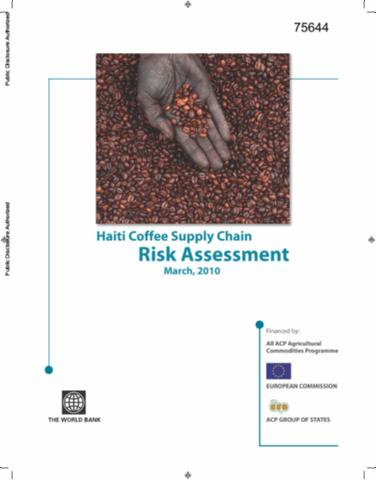Resource information
Coffee is an ecologically and economically significant crop for Haiti. It is not only the main source of income for more than 100,000 farmers, but the coffee ecosystem also sustains a large part of the remaining tree cover (currently at less than 1.5 percent of land) of the country. This report does not aim to detail the structural constraints impacting upon the Haitian coffee sub-sector. Instead, it describes the risks affecting the existing supply chain in terms of their potential impact and prioritizes the risks and areas requiring attention for risk management, investment, and capacity building. The Haitian coffee industry is constrained by significant systemic problems which have contributed to its decline over the years. Some of these major constraints include: (1) the structure of the coffee creole garden which contributes to low on-farm coffee productivity; (2) a land tenure system which inhibits long term investment; (3) poor transportation and logistics infrastructure; (4) limited access to credit and high interest rates; (5) aging coffee trees and farmers; (6) waning government interest and support for the coffee sub-sector; (7) lack of industry level coordination; and (8) a lack of international and domestic promotion of the Haitian coffee industry.


